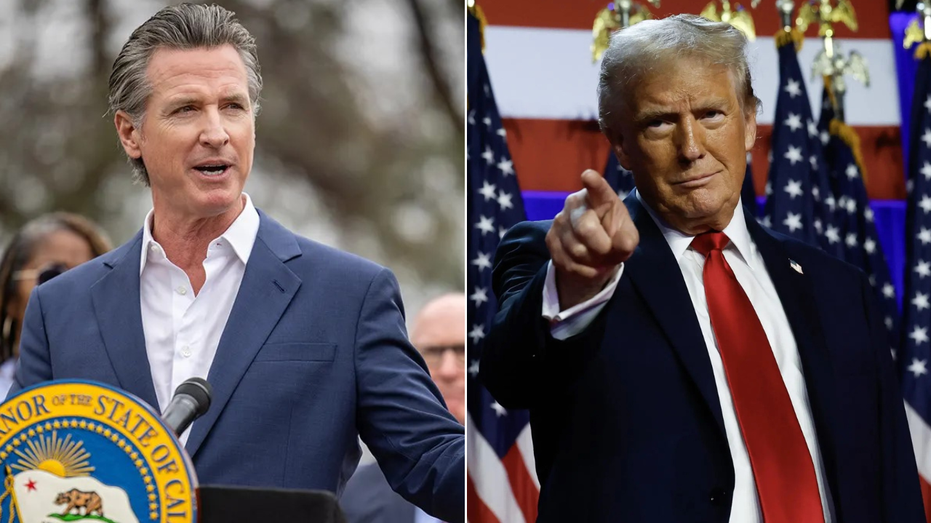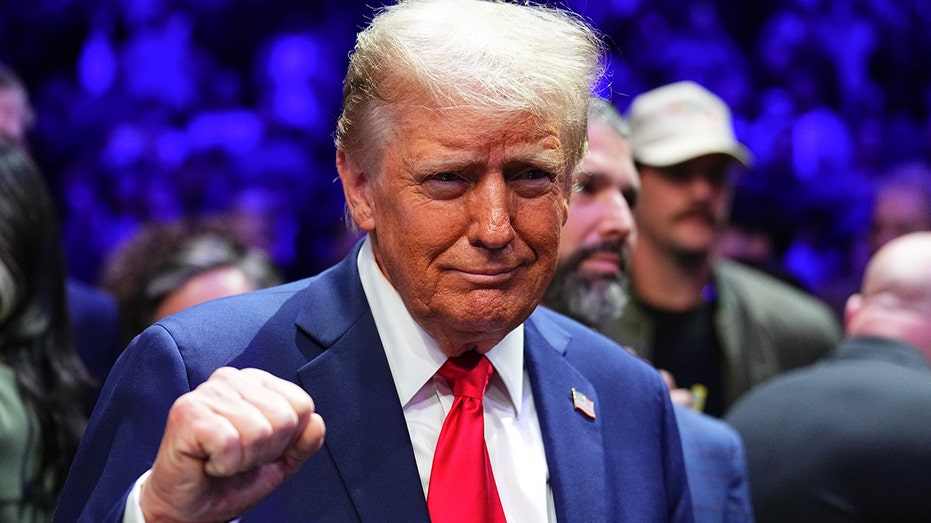Trump Ally Confirms Primary Target in Radical Plan to Slash Budget
Incoming Department of Government Efficiency head and world’s richest man Elon Musk has proposed cutting $2 trillion in government spending—more than Congress’s entire discretionary budget. But some of Donald Trump’s key allies don’t see anything wrong with that picture.In an interview with Fox Business on Friday, Virginia Representative Ben Cline claimed that it “absolutely is” possible to slash that much cash from the budget.“We can do it, and make sure that we focus funding toward the American people and not toward bureaucracy in Washington,” Cline said.Just a reminder: Congress’s discretionary budget funds practically the entire executive branch, doling out funding for the military, national security, and federal agencies.And one cut in particular proved exceedingly uncontroversial for the Virginia congressman: public education.“Give me one idea in terms of what’s significant that you think, ‘That’s got to go right away?’” asked Fox’s Maria Bartiromo.“Well let’s just look at the Department of Education and how billions of dollars stay in Washington, funding bureaucrats whose simple goal is to interfere in the decisions about educational choice at local and state levels,” Cline responded.BARTIROMO: Give me one idea of a significant cut you could make?REP. BEN CLINE: Well let's just look at the Department of Education ... pic.twitter.com/VwCvB84h1P— Aaron Rupar (@atrupar) November 8, 2024But that’s not an accurate picture of the DOE. The federal government provides 13.6 percent of funding for public K-12 education across the nation. In Virginia specifically, it spends $2,020 per pupil per year, providing approximately 12 percent of the state’s education funding, according to the Education Data Initiative.Trump himself has said that his Department of Education plan involves handing the reins and lofty responsibilities of public school administration over to parents, who famously have all the time in the world to oversee educational curricula while simultaneously working jobs and raising their children. During a rally in Milwaukee in October, the MAGA leader promised that his vision for the nation’s educational system would involve very limited oversight from any government, including the states.“I figure we’ll have like one person plus a secretary,” the soon-to-be forty-seventh president said at the time. “You’ll have a secretary to a secretary. We’ll have one person plus a secretary and all the person has to do is, ‘Are you teaching English? Are you teaching arithmetic? What are you doing? Reading, writing, and arithmetic. And are you not teaching woke?’” He also openly admitted that it would, unfortunately, be to the detriment of a great swath of states—particularly poorer ones in the middle of the country. “We’re going to have 35, like, different ones—Iowa will do good. A lot of the states will do very good. I can think of probably 30, 35 will be do—five will be OK, 10 will be OK. You’ll have four or five that will be terrible, but that’s OK, we have to control it,” Trump told 5,000 people in Indiana, Pennsylvania, in September. “But you’ll have, you’ll have Idaho, you’ll have Idaho will do a great job, no debt, they run a great state.”But slashing the Department of Education was always part of the agenda. Despite attempts to distance the campaign from Project 2025, Trump allies have outright admitted in the wake of election night that the 920-page Christian nationalist manifesto was actually the blueprint for Trump’s second administration all along.And it’s not all political smoke and mirrors. When it comes to budget cuts and the economy, experts believe that Trump is more than likely to keep his promises.“He’s not very movable on trade issues, and he does what he says he’s going to do,” William Alan Reinsch of the Center for Strategic and International Studies told Yahoo! Finance in October, in an assessment of the Republican leader’s 2016 economic agenda. “I think he means it, and I think he’ll do it,” Reinsch, a former trade lawyer and undersecretary of commerce, said of Trump’s tariff plan on Chinese goods. The outstanding question will be whether or not the courts attempt to block it.

Incoming Department of Government Efficiency head and world’s richest man Elon Musk has proposed cutting $2 trillion in government spending—more than Congress’s entire discretionary budget. But some of Donald Trump’s key allies don’t see anything wrong with that picture.
In an interview with Fox Business on Friday, Virginia Representative Ben Cline claimed that it “absolutely is” possible to slash that much cash from the budget.
“We can do it, and make sure that we focus funding toward the American people and not toward bureaucracy in Washington,” Cline said.
Just a reminder: Congress’s discretionary budget funds practically the entire executive branch, doling out funding for the military, national security, and federal agencies.
And one cut in particular proved exceedingly uncontroversial for the Virginia congressman: public education.
“Give me one idea in terms of what’s significant that you think, ‘That’s got to go right away?’” asked Fox’s Maria Bartiromo.
“Well let’s just look at the Department of Education and how billions of dollars stay in Washington, funding bureaucrats whose simple goal is to interfere in the decisions about educational choice at local and state levels,” Cline responded.
BARTIROMO: Give me one idea of a significant cut you could make?
REP. BEN CLINE: Well let's just look at the Department of Education ... pic.twitter.com/VwCvB84h1P— Aaron Rupar (@atrupar) November 8, 2024
But that’s not an accurate picture of the DOE. The federal government provides 13.6 percent of funding for public K-12 education across the nation. In Virginia specifically, it spends $2,020 per pupil per year, providing approximately 12 percent of the state’s education funding, according to the Education Data Initiative.
Trump himself has said that his Department of Education plan involves handing the reins and lofty responsibilities of public school administration over to parents, who famously have all the time in the world to oversee educational curricula while simultaneously working jobs and raising their children.
During a rally in Milwaukee in October, the MAGA leader promised that his vision for the nation’s educational system would involve very limited oversight from any government, including the states.
“I figure we’ll have like one person plus a secretary,” the soon-to-be forty-seventh president said at the time. “You’ll have a secretary to a secretary. We’ll have one person plus a secretary and all the person has to do is, ‘Are you teaching English? Are you teaching arithmetic? What are you doing? Reading, writing, and arithmetic. And are you not teaching woke?’”
He also openly admitted that it would, unfortunately, be to the detriment of a great swath of states—particularly poorer ones in the middle of the country.
“We’re going to have 35, like, different ones—Iowa will do good. A lot of the states will do very good. I can think of probably 30, 35 will be do—five will be OK, 10 will be OK. You’ll have four or five that will be terrible, but that’s OK, we have to control it,” Trump told 5,000 people in Indiana, Pennsylvania, in September. “But you’ll have, you’ll have Idaho, you’ll have Idaho will do a great job, no debt, they run a great state.”
But slashing the Department of Education was always part of the agenda. Despite attempts to distance the campaign from Project 2025, Trump allies have outright admitted in the wake of election night that the 920-page Christian nationalist manifesto was actually the blueprint for Trump’s second administration all along.
And it’s not all political smoke and mirrors. When it comes to budget cuts and the economy, experts believe that Trump is more than likely to keep his promises.
“He’s not very movable on trade issues, and he does what he says he’s going to do,” William Alan Reinsch of the Center for Strategic and International Studies told Yahoo! Finance in October, in an assessment of the Republican leader’s 2016 economic agenda.
“I think he means it, and I think he’ll do it,” Reinsch, a former trade lawyer and undersecretary of commerce, said of Trump’s tariff plan on Chinese goods. The outstanding question will be whether or not the courts attempt to block it.



